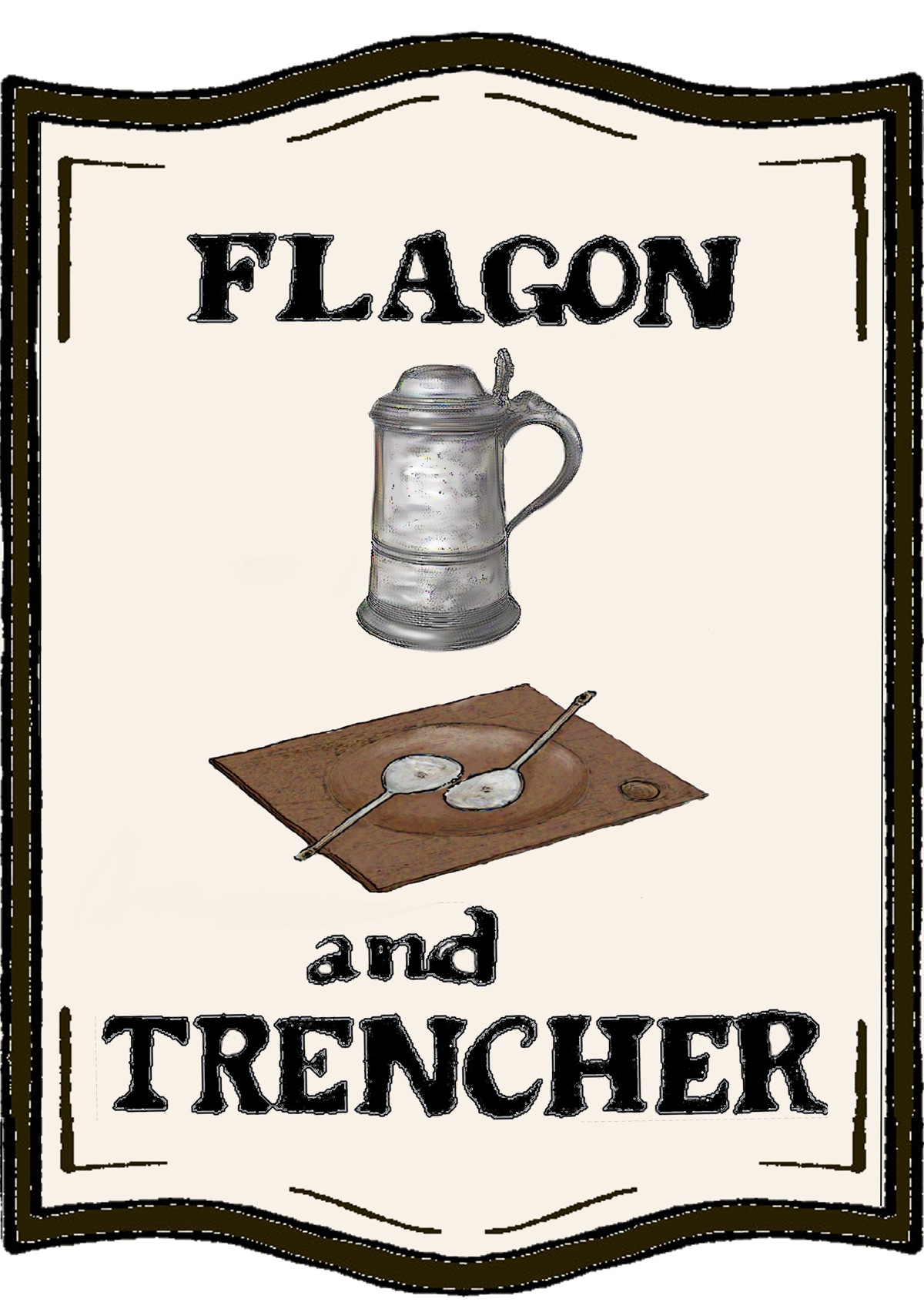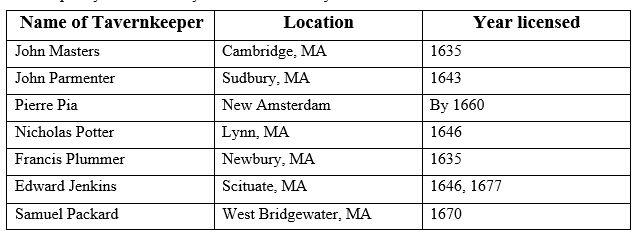Flagon and Trencher
When you study genealogy, you almost immediately become aware of a vast array of “lineage societies” – the groups that form so people can trace their ancestry to significant historical events or people. There are hundreds of such groups. Here are a few of the most well-known lineage societies:
Daughters of the American Revolution (DAR)
Sons of the American Revolution (SAR)
Mayflower Society
Jamestowne Association
Holland Society of New York
The Order of Descendants of Pirates and Privateers
General Society of the War of 1812
United Daughters of the Confederacy
Sons and Daughters of the Oregon Pioneers
There are other not-so-well-known societies:
Associated Daughters of Early American Witches: I qualify for this one through my paternal 9th great-grandmother Margaret Stephenson Scott, who was hanged as a witch at Salem on September 22, 1692
Descendants of the Illegitimate Sons and Daughters of the Kings of Britain: I don’t have any connections, legitimate or otherwise, to the Kings of Britain. I just think this is an interesting group.
National Society of Saints and Sinners: For this society, a potential member must prove descent from a saint. So far as I know, I don’t qualify for this group.
For a variety of reasons, I haven’t worked toward joining any of these societies. I’m interested in doing other things with my genealogy research. However, I’m thinking about joining one of these organizations – Flagon and Trencher, a society composed of men and women who can trace their ancestry to one or more licensed operators of an ordinary tavern, inn, public house, or hostel, prior to July 4, 1776, in the area that became the original thirteen states of the United States.
From its website, it appears that this society exists primarily to have yearly parties in various colonial taverns. This is a society I can identify with.
I could qualify for this society under several of my ancestors:
I have downloaded the application form and I’m in the process of qualifying for this lineage society through my paternal 10th great-grandfather John Parmenter (1588-1671), who was a church deacon and also the proprietor of the first tavern in Sudbury, Massachusetts. He received the license to run this tavern in 1643. In 1655, the Parmenter Tavern served as the meeting place for the Massachusetts Colonial Court and Ecclesiastic Council, a group that existed to settle disputes in the community. Town records show that John was reimbursed 17 pounds, five shillings, and 12 pence for entertainment costs associated with this meeting.
I’d let you know how this turns out.





